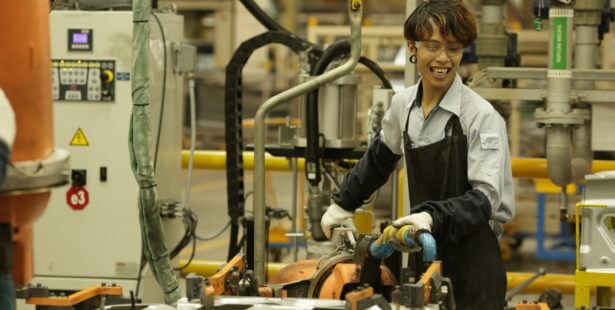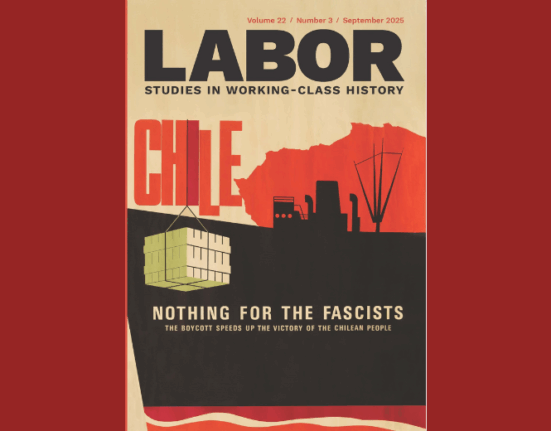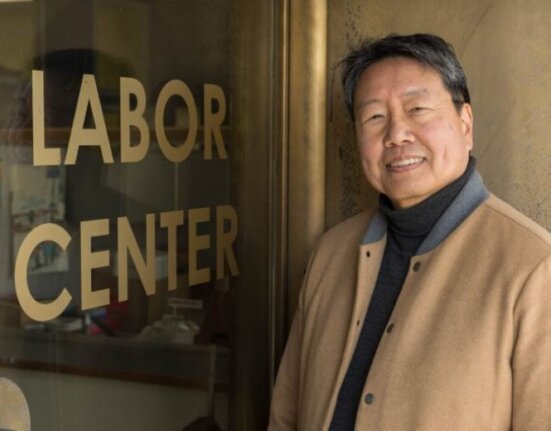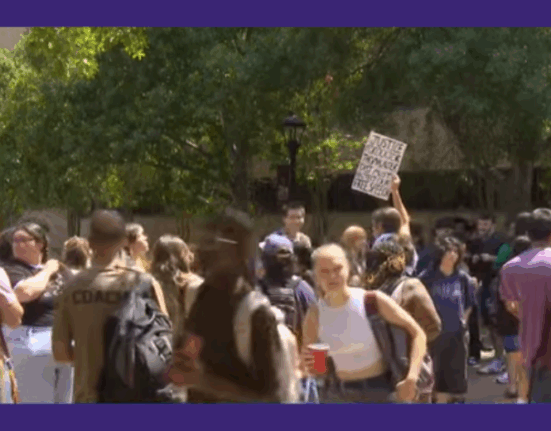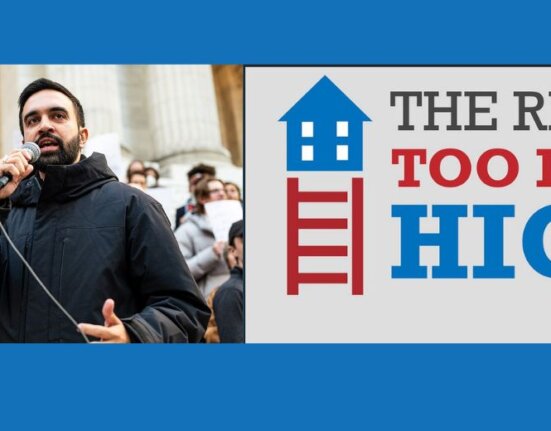Pride in something seems to be a good thing to have. But pride can lead to prejudice. And it can also lead to displacement and erasure. For many, President Trump’s promise on Inauguration Day, that “From this moment on, it’s going to be America First,” feels like an evocation of national pride. Yet as we have seen, when pride asserts the interests of one group above all others, then bellum omnium contra omnes (the war of all against all) closely follows. But should deformations of pride in one place be a reason not to endorse it elsewhere? Or is it always better left in a lockbox? Working-class pride, which may involve pride in one’s work, family, and community, seems unassailable. But what about when that pride makes it “acceptable” to exclude others and celebrate insularity?
How to navigate these two ways of thinking about working-class pride is an urgent political problem and a theological puzzle. We cannot separate them, because the dominant mode of interweaving political and religious claims about the good life in the United States, and elsewhere, has taken a toxic turn. Untamed pride is a threat to any community and wounded pride is a threat to the individual. And wounded pride is too often turned against others.
Pride has a long criminal record in some theological circles. As the Book of Proverbs emphasizes, “When pride comes, then comes disgrace; but wisdom is with the humble” (Prov. 11:2). Many theologians view pride as the “original sin” — the source of all the other sins and thus the deadliest one of all. In one widely accepted interpretation of Isaiah 14, the once mighty angel, Lucifer, was the first to rebel against God by boasting that “I will ascend to the heavens; I will raise my throne above the stars of God” (Is. 14:13). It was just a matter of time before Lucifer coiled up as a serpent to have a friendly chat by the cooler with Adam and Eve.

As shop floors go, the Garden of Eden had amenities. A river ran through it, all kinds of trees grew there, and the canteen had good fruit. There were not many work rules except one – don’t eat from the boss’s lunch pail. Yet His food was tempting, and it was such good brain food. Eat this and you could become like the boss. You would understand management, what to do and what not to do. But eating the fruit from the forbidden tree was not good for the working class. Adam and Eve were driven from the Garden of Eden and on the way out, God intoned, “Cursed is the ground because of you; through painful toil you will eat food from it all the days of your life. It will produce thorns and thistles for you, and you will eat the plants of the field. By the sweat of your brow you will eat your food until you return to the ground, since from it you were taken; for dust you are and to dust you will return” (Gen 17b-19).
Work as a curse, work transformed into toil, toil as a punishment for sin – all of these myths have cast a long shadow on Western ideas about the workplace. The closer one is to the thorns and thistles of daily labor, the nearer one seems to be to the curse that produced pain and sweat and ultimately death. If pride led to these working conditions, then it is hard to take pride in such work. To be sure, theologians have tried to recuperate this dire image of the workplace by claiming that even in post-Fall conditions, we are made in the image of God and still partake in the co-creative and redeeming aspects of daily work. Yet, the workplace remains, eternally it seems, a place of hierarchy, where some have significantly more power, pay, and prestige than others.
Recent history has made the challenges of working-class pride even worse. Since the early 1970s, the United States has undergone a sustained and seemingly unrelenting resurgence of capital formation and accumulation. All that was solid has melted into air, or so it seems to those in the white working class who relied on once solid jobs to sustain their families and their communities. In a raging sea, much like the prophet Jonah who called out to God only to be swallowed by a huge fish, people look for security. New gods have arisen to address the rusting away of work. Some identify with the whale of neoliberal Mammon and others with the big fish swimming in the Christian Right (that huge current traceable to the fundamentalist Moral Majority from 1979). Some choose both gods – safety in numbers.
When times get tough, the past gets better. Reagan’s classic television ad in the 1984 campaign, “It’s morning again in America,” and the current mantra to “Make America Great Again” both appeal to a golden past that, if regained, would restore the losses and redress the grievances of a people yearning for renewal. The Reagan Democrats in the 1980s, many of them union members, and now the white working-class supporters of the current administration, seek that older and better era.
What is left after two generations of the ascendancy of the neoliberal economic formation and the Christian Right? White working-class pride rooted in hopes of upward mobility is a chimera, and self-valuation rooted in racism and xenophobia is a monster. For the evangelical working class, a right-leaning theological framework that views poor workplace conditions as a result of human sin appears to correctly characterize the world of work but offers little hope. Stubborn pride in one’s work, never easy at any time, might be an option if one had work or a consistent source of income. These days, working-class pride, has few stable or acceptable sources.

Institutional bases for working-class pride, such as labor unions, have suffered continuous decline. Erosion of control over production and decreased shop floor self-advocacy have become facts of work life. When pride in being working class loses its institutional base and its material foundation in the workplace, members of the working class seek affirmation elsewhere. Instead of working collectively to remake the world, workers are now more likely to focus on trying to escape the working class. The loss of manufacturing jobs, the proliferation of low-paying non-union jobs in the service industries and food production, and the casualization of all that exists offer few opportunities for working-class pride to arise from the solidarity that a community in struggle can promote. Such pride cannot be invoked out of thin air by simply hoping or wishing for it. Instead, it is what can happen when working-class people join together — within unions or in other ways — to take on the conditions of their own lives and work to transform them.

